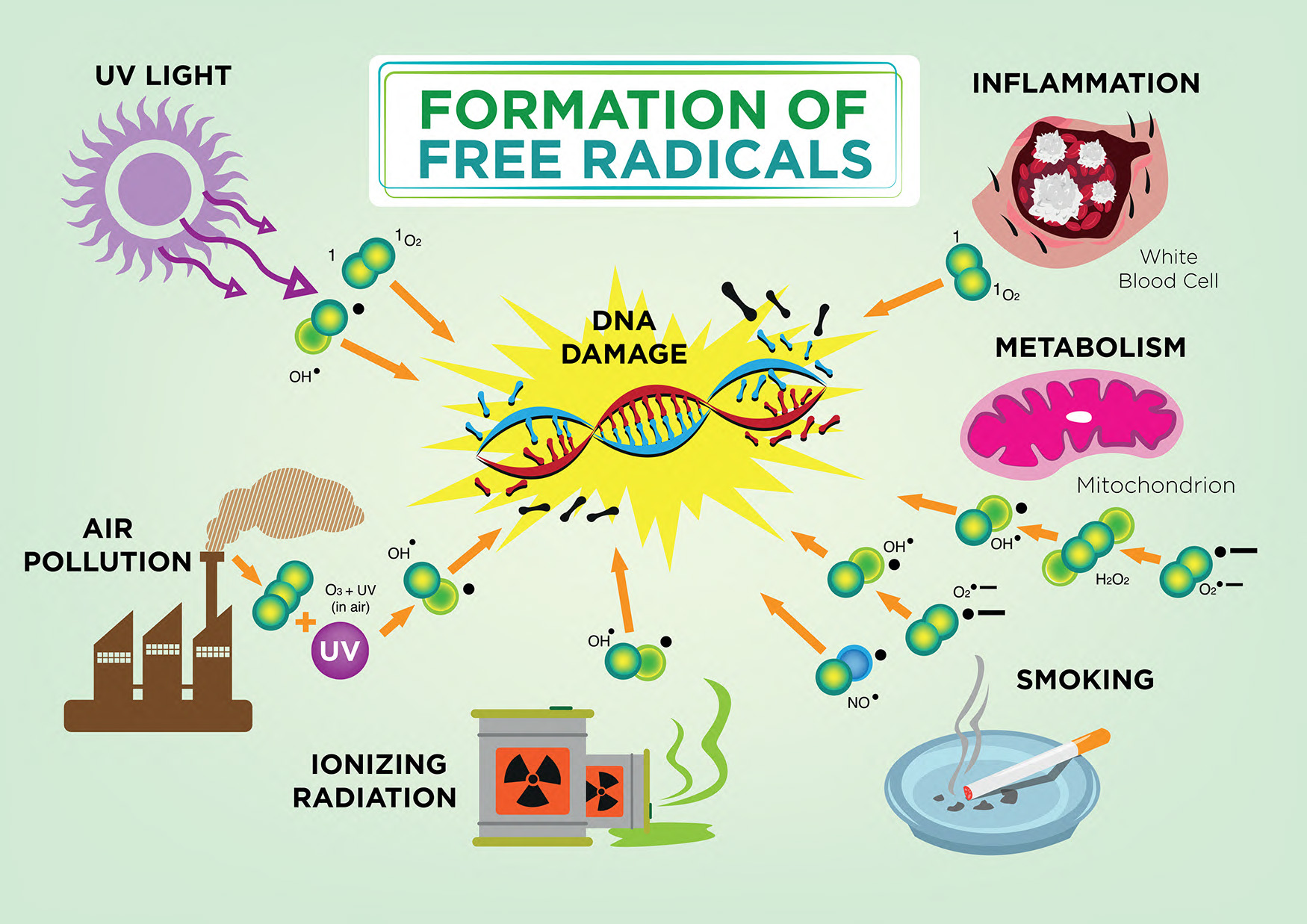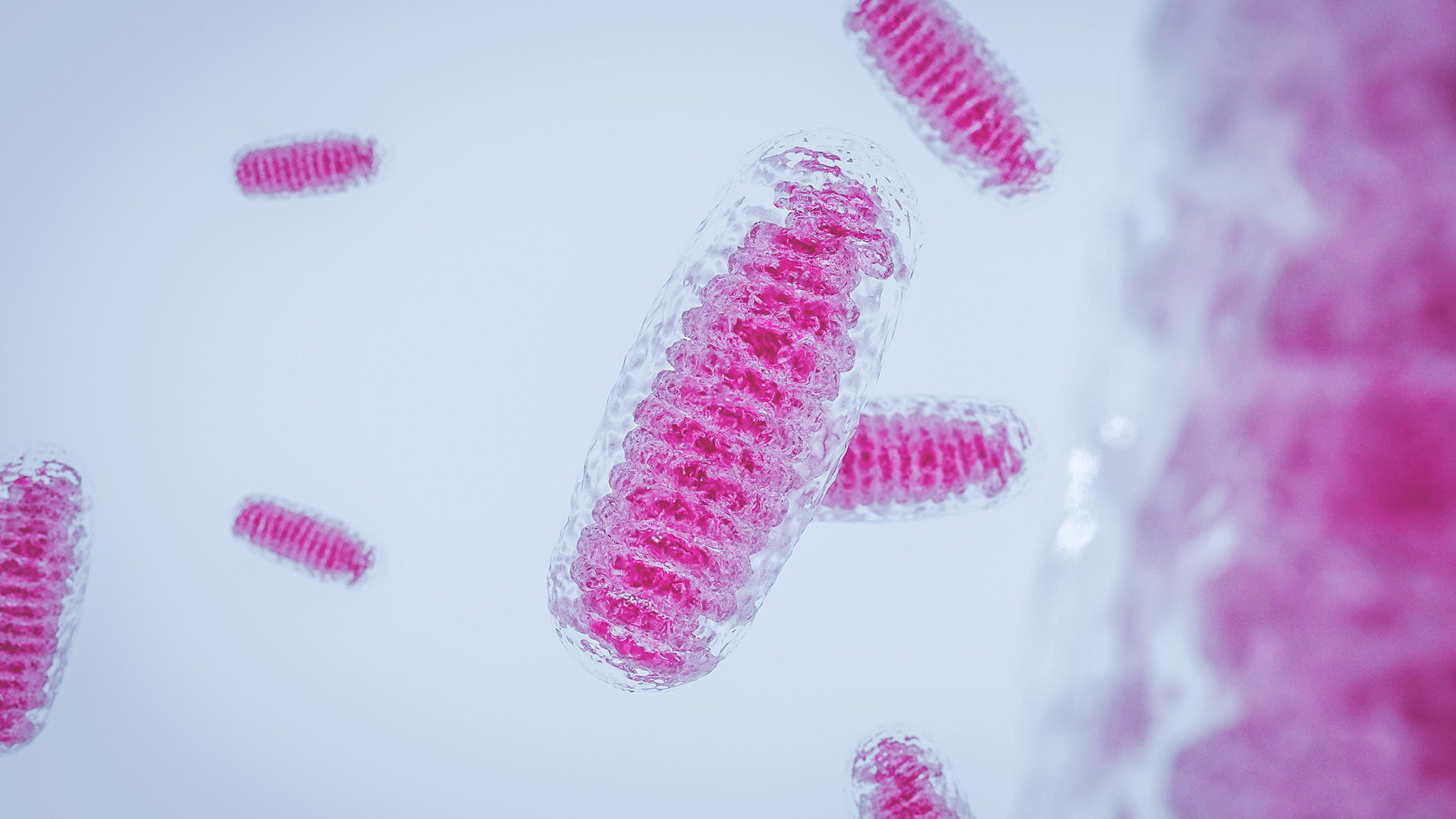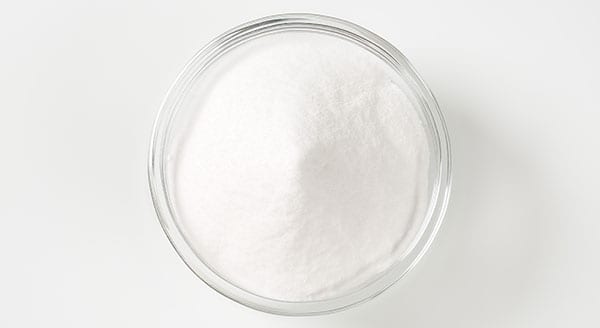How Are You Aging? Our Top Tips to Boost Mitochondrial Function
How Are You Aging?
Our Top Tips to Boost Mitochondrial Function
In today’s society, there are so many of us trying to escape the confines of time. Reversing the aging process has given way to various anti-aging products, such as creams, face-masks, and more. We always seek to stop it – or at the very least, slow it down. But what exactly is aging? And what are the best ways to slow down the aging process?
Simply put, aging is the process where a person becomes older. Wrinkles may begin to appear (hence, anti-aging beauty creams). Your body may become less mobile. You may begin to feel generally worn down.
According to the World Health Organization (WHO), “aging results from the impact of the accumulation of a wide variety of molecular and cellular damage over time.” In other words, your body’s repair and restore system can’t keep up and eventually we all succumb to the inevitable and gradual aging process. In turn, this leads to an organism’s death. And while that may sound bleak, the truth is that immortality is still but a dream in the far off distance.
Ultimately, this cellular and molecular damage causes mental and physical deterioration, as well as leads to a higher risk of various diseases. Yet, still, we try to escape it through beauty creams and in some cases, surgery. We rarely look at this process from a more cellular level. And if we were, we would find that we can actually decelerate this aging process from the inside out.
Promoting Cellular Regeneration
In order to put the brakes on the aging process, cellular regeneration is necessary to replace old and damaged cells. This means a variety of ingredients and processes are required to create new cells in their place. And to do that, robust and healthy mitochondria, known as the powerhouses of a cell, are essential for regeneration and repair.
The mitochondria supplies the body with ATP (adenosine triphosphate), which is the energy driving various processes in the body. ATP plays a key role in metabolism and maintaining homeostasis.
Research shows that mitochondrial dysfunction may lead to neurodegenerative diseases, including Alzheimer’s Disease, Parkinson’s Disease, and Huntington’s Disease. It has further been theorized that these dysfunctions also extend to other life-threatening diseases, such as a stroke, cardiovascular disease, cancer, and more.

In fact, studies demonstrate the use of healthy and properly functioning mitochondria aiding in the regeneration of neurons, particularly those in the hippocampus region of the brain. The hippocampus is responsible for memory processing. Other research has even shown the hippocampus volume to correlate with the severity of an individual’s cognitive impairment.
On top of mitochondrial dysfunction leading to accelerated aging, there is also oxidative stress occurring throughout the body on a regular basis. Oxidative stress happens when free radicals, which are produced by natural processes within the body, cause damage to the cells and their function. This is why antioxidants are considered such an important piece in good health – they prevent free radicals from causing damage.
Interestingly, mitochondrial DNA may be particularly susceptible to oxidative stress caused by reactive oxygen species. In turn, this can accelerate aging and prevent the regeneration of cells, as well as alter their ability to function. But it also gives way to the fact that boosting mitochondrial health may be a more effective way to decrease the aging process. How can you do this? We take a closer look in the next section of this article.

Tips to Boost Mitochondrial Health
The mitochondria are undeniably an important part of the cell. They provide energy which allows your cells to function as they should, contributing to all-round good body health. However, dysfunction of the mitochondria is related to various diseases, as well as accelerated aging.
The good news? You can help your mitochondria out through various means. Consequently, you can age as gracefully as possible. Try using the following tips.
1. Exercise
In terms of health, regular physical activity comes up again and again. Research has proven numerous times how important exercise is for optimal health, as well as its ability to help decelerate the aging process.
Researchers further theorize that exercise may contribute to increased mitochondrial adaptation. And this isn’t only restricted to muscle tissue. Researchers claim this increased adaptation may further be true for mitochondria in other cells outside of muscle tissue. In other words, exercise improves your mitochondrial health. As a result, this may help improve cellular regeneration and other processes that slow down aging, serving as yet another excuse to develop that regular exercise routine!
2. Reducing Exposure to Pollution and Stress
A 2020 study states, “Traffic-related air pollution exposure (particulate matter (PM), soot and nitrogen dioxide (NO2)) has been associated with premature skin aging.” Another recent study also elaborated on the adverse health outcomes that result from this air pollution. It not only impacts your skin’s health, but also indicates a higher risk of high cholesterol, high blood pressure, and obesity – all of which can have premature aging outcomes. While you may not be able to change where you live, you can take breaks into nature and fresher air, decreasing the impacts of such pollution.
Further, pollution is technically a form of stress on the body, which is why further adverse health outcomes are relevant. And if you can’t escape the pollution, you may benefit from reducing other stressors in your life. Taking care of your mental well-being as a direct link to your physical health. Proactively find ways to de-stress and unwind. It might be your key to living a full life, well into your later years.

3. Try These Supplements
Ultimately, improving your diet is the best way to go. If you can get any of these via all-natural means, do so. But if not, sometimes, supplements are the next best thing.
A. Antioxidants
Antioxidants help prevent free radical damage. You can supplement these, but you can also obtain these through various foods, such as berries, grapes, garlic, onions, carrots, and more.
B. Healthy Fats
Consuming healthy fats results in the production of fewer free radicals, again lowering oxidative stress on the body. One study showed that short-term high-fat diets in animals resulted in the increased capacity of skeletal muscle mitochondria to be able to oxidize fatty acids. However, this doesn’t necessarily mean you should go all out on a high-fat diet. It’s about including healthy fats in your diet that promote proper functioning of the mitochondria and the rest of the body.
C. NAD+
NAD+ plays a key role in mitochondria function. It can even help restore the function of dysfunctional mitochondria. It’s one of the most under-utilized supplements to prevent brain-related or neuro-related declines related to aging. And when combined with other substances, it creates a synergy contributing to increased energy in the brain and better cognitive functioning.
What Are You Missing?
Where can you improve? What can help you age better? Add it into your lifestyle before it’s too late!
And if you’re ready to optimize the power of your brain through all-natural substances, try Nadovim. Provide your body with the cognitive support it needs, while preventing neural degeneration related to the aging process. It is entirely possible to age gracefully!
“I experience what most 60+ year olds do – Why did I come into this room? What was I going to say?
My ability to refocus and recollect my thoughts have improved greatly. An added bonus is better sleep and the ability to get myself back to sleep if I wake up at 4am.
Highly recommend Nadovim.”
Discover more about Nadovim

The post How Are You Aging? Our Top Tips to Boost Mitochondrial Function appeared first on Nadovim.
See how we can help you restore complete health of body, mind & spirit.
Lorem ipsum dolor sit amet, consectetur adipiscing elit, sed do eiusmod tempor incididunt ut labore et
The future of medicine...today.
Step into a world that empowers you to reclaim your miraculous self-healing potential. Join our exclusive community and receive curated insights, cutting-edge health products, and invitations to transformative experiences.


